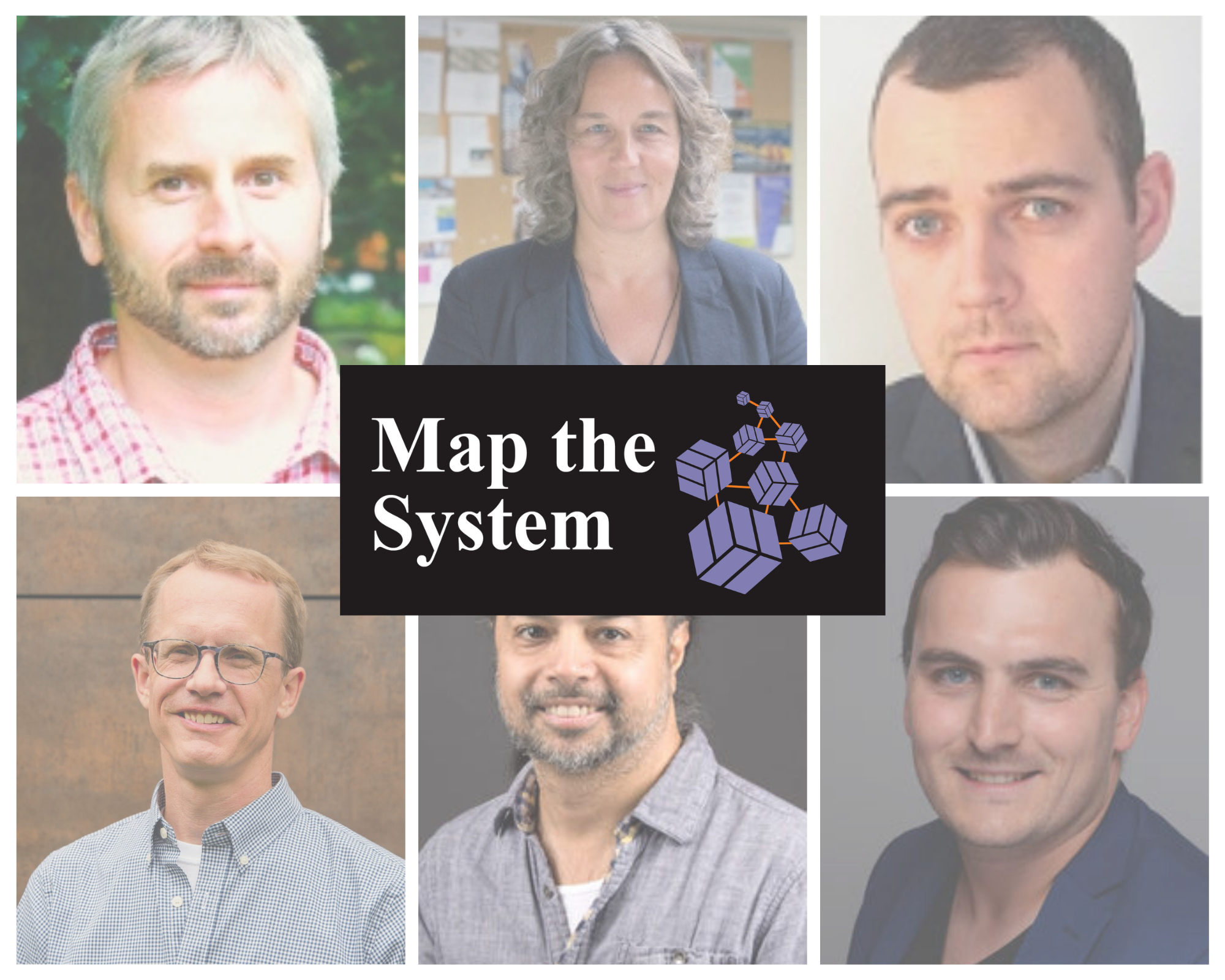The Kindred Credit Union Centre for Peace Advancement, alongside six passionate University of Waterloo faculty members, are championing systems thinking on campus.
A unifying approach between the myriad of peacebuilding professionals who are advancing peace in the Centre is the use of systems thinking, a holistic way to analyse a problem that considers the impacts of interrelated, interdependent parts of a whole. This is the heartbeat of Map the System—an annual, global competition brought to the university by the Centre for Peace Advancement.

The University of Waterloo Council for Responsible Innovation and Technology (CRIT) is a prominent supporter of Map the System at Waterloo. CRIT Research Associate Jason Lajoie is excited about how this opportunity can further research that engages the effects of technological innovation: “The Map the System competition is ideally suited to foster the innovative, systems thinking approaches our UWaterloo students need to responsibly address these complex socio-cultural, economic and environmental impacts.”
The multi-disciplinary application of systems thinking has allowed many pathways for students to receive academic credit for Map the System:
- Jonathan Baltrusaitis and Karin Schmidlin are each teaching a section of GBDA 302: Global Digital Project, a course that has previously embedded Map the System.
- Matthew Borland, a lecturer in the department of Systems Design Engineering, will be integrating Map the System into his design course SYDE 362: Systems Design Methods 2: Testing, Verification, and Validation.
- Paul Heidebrecht, Director of the Centre for Peace Advancement, is teaching a new course structured around the competition that is open to both undergraduate and graduate students—PACS 490/620: Map the System.
- Simron Singh will be teaching a graduate course titled INDEV 607: Methods for Sustainable Development Practice: A Systems Approach, which will also be integrating the competition.
- Tobias Thielen, lecturer with the Master of Digital Experience Innovation program, will be embedding the competition in his DEI 625: Innovation and Impact course.
Waterloo Map the System Campus Lead Thomas Fraser, a new addition to the team this year, is excited to support students through this unique learning opportunity, whether they are competing in a curricular or co-curricular manner: “We live in unprecedented times requiring unprecedented responses, and Map the System is helping pioneer a path toward much-needed innovation. I look forward to supporting competitors through this valuable and transformative experience.”
Want to talk to someone about getting involved with Map the System? Connect with Campus Lead Thomas Fraser.